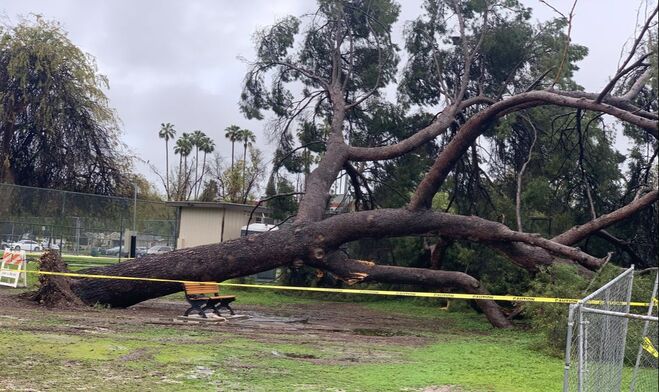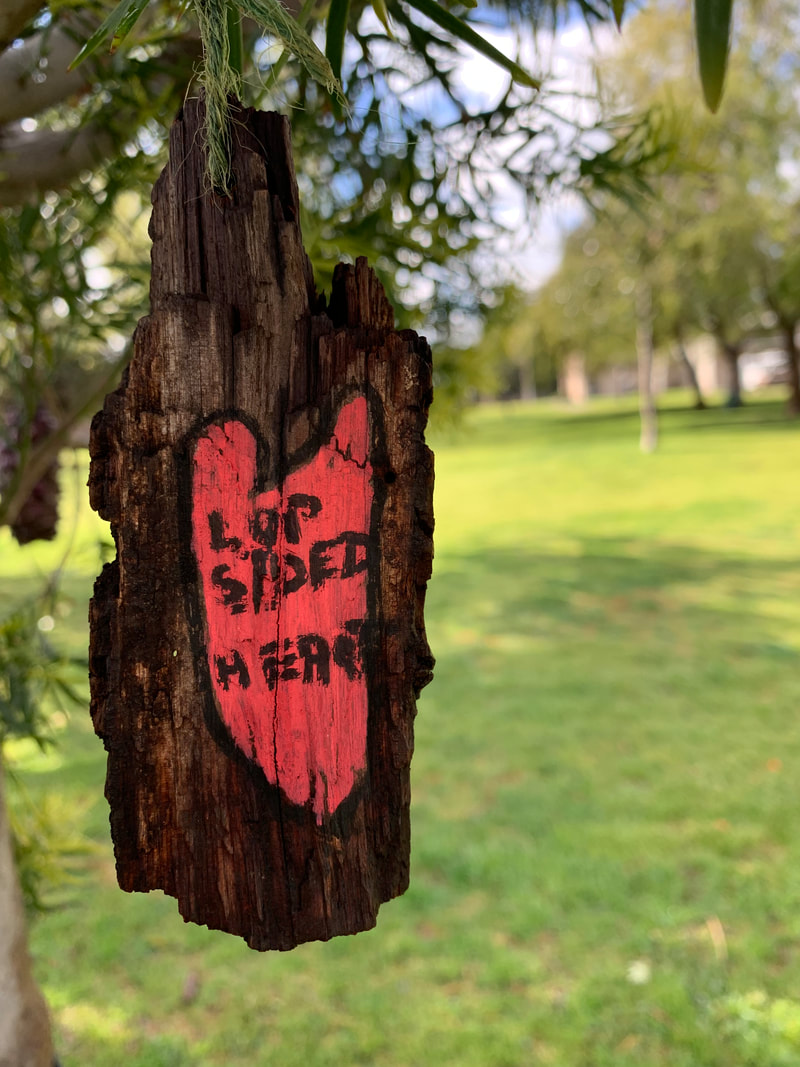Now, I’d later learn the unofficial term of what I was about to do is called Bible Roulette - this is where one challenges God to prove God’s self by opening the bible and randomly slamming one’s finger down on verse. That verse, of course, will be the answer you’re looking for.
In between short sips of air and the voice screaming “How will I put shoes on their feet?” I attacked the Bible next to my bed and smashed my finger down on the page. And this is what I read. “Why do you worry about clothing?” That was all it took. God won. I didn’t have the fight in me anymore. As I surrendered and let go of my fear, that tight grip on my heart was released. All my worries seem to just melt away. One of the most repeated phrases in the entire bible is “Do not be afraid,” or a variation like “Do not fear,” or “Do not worry.” I’ve been told that this phrase is repeated in the Bible 365 times. In these few verses alone, Jesus says four times. Between the wars and threats of wars, a lingering pandemic, and a fragile economy It’s hard not have a little worry and fear rattling around inside your head. You might not worry what you’re going to eat or wear, but many of us are afraid of what others think or worry what they say behind our backs. Parents will always worry about their children. And children will worry about their parents. You might worry about getting a promotion, while someone else is fearing losing their job. It wasn’t that long ago when there was worry and fear about having enough toilet paper for everyone. According to Jesus, focusing our energy on that stuff won’t add another second to your life. It won’t give you any more sleep. Or less grey hairs. Instead, we’d do well to follow the advice of Alfred E. Neuman, the iconic spokesman for Mad Magazine who famously quipped: "What, me worry?" His sage advice was always the opposite of what my teachers were telling me at school. For some reason they wanted us to worry. Worry about our grades, worry about our future, and definitely worry about being judged by God. It’s as if they wanted us to be full of fear, instead of being filled with faith.
watch service here
Looking at the birds flying around, and the grass blowing in the breeze, Jesus shifts our attention off of us, and directs it back to God. And God’s faithful abondance.
He reminds his disciples that just as animals and flowers are made by God’s divine hand, so too are each one of them. If God takes care of the least of these in creation, then surely that includes every human being too. God’s kingdom is about abundance, not scarcity. During my panic attack I had lost sight of this powerful truth. I suspect these new disciples had too. Granted, they had a good reason to be worried and afraid. After all, they quit their jobs and left the security of their family and community to follow Jesus. We too might have legitimate reasons to fear where Jesus is leading us. I certainly did. But what good does it do? How does it help us become a community formed and fashioned for God’s kingdom? Here’s what we need to remember: God is faithful to a fault. Jesus looks at the world around him, and essentially tells the twelve to empty themselves of their fears and worries so they can be filled with the abundance of God’s provision and care. “Live in God’s faithfulness and you’ll be alright.” This is God’s Kingdom. God is still in control. If we believe God is an intimated, caring, and a trustworthy parent who provides all that we need, then it’s possible for us to become a community that shares the same intimacy, care, and trust with others. As Jesus will spend the rest of his ministry demonstrating, God gives us all that we need to enter every space as a living manifestation of God’s loving abundance. As Jesus shows us, God’s perfect love helps us become perfect at loving each other. Because God is more faithful, we can be faithful to one another. Because God is more merciful, we can always show mercy. Because God is more than gracious, we can always be gracious. We can love God, love others, and serve both because God is forever faithful. God’s will always prevail…even if and when we fail. Looking at Anamesa, that space between heaven and earth, Jesus reminds us that every living thing is under God’s care. And God will not leave us without resources or support. Just as God has not abandoned the forest and oceans, God will not abandon you or me. Once we wrap our head and heart around this reality, worry or fear will lose all its power over us. When we come to embrace God’s faithfulness and goodness, then we can go out into the world as “a living witness to the character of God’s loving abundance and care for creation.” So you see, Alfred E. Neumann was right. “What, me worry?” All is okay and we’ll be okay too. Or to quote Richard Rohr, “Stop fretting and fearing and enjoy divine union now.” As we make our pilgrimage through Lent to Easter, we might face challenges and circumstances that could cause a panic attack or two. But I’ve learned, time and time again, that we can face life’s uncertainties and contingencies knowing God is ever faithful and ever present; creating new life out of our pain and suffering. And even out of death. As we walk towards the Good Friday cross, and the darkness that follows, may we never lose site of the Easter light that broke through the darkness - where God proved to the world what God is capable and willing to do to for all of creation. The One who looks out for the transient life of grass with such beauty and care, is also looking out for you and me. Instead of worrying about what you will eat, or drink or wear let’s use our time and energy being a people whose faith is in grounded in God’s faithfulness; whose love mirrors God’s love; and whose focus is on the Kingdom of God and righteousness. If we trust Jesus at his word, then all these things will be given unto you. Work Cited Adapted from Seriously, Don't Worry About It by Ian Macdonald on 08.22.2021
2 Comments
“Beware of practicing your piety before others in order to be seen by them.” Given the lessons from the last couple of weeks, today’s text should come as a relief. As Amy Richter points out, “If you want to get strange looks, read your Bible in public, pray aloud in a restaurant, or talk about what Jesus means to you to the person next to you while you’re waiting for a bus.”
Jesus’s words are a bit ironic don’t you think, seeing that just a few weeks ago we kicked off Lent by smearing ashes on our forehead and going out in public. Right after that we get Jesus telling his disciples to let their “light shine before others.” And in Isaiah doesn’t God explicitly say, “I don’t want you sitting around in sackcloth and ashes looking miserable. I want you to get up and do something good. Feed the hungry. Clothe the naked. House the homeless. Give to the poor. Change the world. That’s the kind of religious offering I’m looking for.” God clearly wants our faith to be seen. So perhaps, in light of the Academy Awards Show tonight, we should look at this particular section of Matthew’s gospel as if Jesus is saying, “Don’t let our religious practices become an Oscar worthy performance. The world isn’t your stage. It’s God’s.” In other words, don’t play or pander some self-righteous show to reap the praise of others. Instead, “Let your light shine so others can come to see God’s glory.” Our obedience to Christ shouldn’t make good social theater. It should be about building up God’s kingdom here and now.
A few years ago, I was critical of a group of evangelical leaders went to the White House and before the cameras, they laid hands and prayed over someone who many argued was the antithesis of everything Jesus stood for. It was a self-righteous, theatrical performance at its best. They went on to justify their shameless pandering touting how it earned them favor with the President.
In my self-righteous anger, I called them out by name asking, “Where is Christ in your Christianity?” At the time it felt like the right thing to do. But where was Christ in my own Christianity, pointing out the faults of others without looking first at myself? Was I any different, speaking out in front of this camera to win the applause and approval of whoever was watching? Self-righteousness is bad theater that’s not only bad to watch, but bad for the Kingdom of God. While praying, fasting, or giving alms are important to our spiritual growth, they can endanger the relationship we have with God if our heart is in the wrong place. Jesus warns us of hypocritical displays of piety and moral rectitude because he knows how easy it is for us to make ourselves the center of attention. I remember sitting in a church where someone stood up, pulled a bunch of $100 bills from his wallet, and instead of putting them in the offering plate, he waved them around and challenged others to match or beat his gift. Amy Ritcher writes, “The hypocrite acts for others. Some play the role and may not even realize it’s only an act.” It was just a few years ago, a football coach sued the school district to allow him to publicly pray with his team out on the field. I believe deep down in his heart he was just trying to honor God, but the backlash and bad press it caused didn’t do much to promote God’s glory. Jesus wants us to be mindful of the motive behind our fasting and feasting, our praying and giving. Are we doing it for our spiritual growth, to be closer to God? Or to get praise and recognition? Jesus will call his disciples to walk a narrow path, one we will all walk on the pilgrimage of life. On one hand, we must let our light shine in the many ways we show God’s love, mercy and grace to one another. On the other, we must be mindful that our motivation behind our acts isn’t self-rewarding or hypocritical. For Jesus, that’s what perverts discipleship. “Turning our outward gestures into currency for enhancing one’s reputation,” writes Marilyn McCord Adams, “betrays our deepest loyalty by breaking the first and greatest commandment: to love God with all we have.” Between the applause, we must take the time to pause. And following the advice of St. Benedict, we must go inside ourselves and listen with the ear of the heart. It is the heart that Jesus is talking about. This is the secret space where only we can go. Jesus sends us there not to be praised or applauded but to be in divine union with God.
Lent is a time we go inward, into the wilderness of our own being, to take inventory of our true selves, our real motives, and intentions.
While it’s always good and worthy to do nice things for others, if it’s done while secretly resenting them for it then what good is that gesture? Do we really believe God doesn’t see through the disguise? Before we can go out and let our light shine, we first must connect with the divine light within ourselves where prayer, sacrifice, and charity are first conceived. In his Message translation, Eugene Peterson said like this, “Find a quiet, secluded place so you won’t be tempted to role-play before God. Just be there as simply and honestly as you can manage. The focus will shift from you to God, and you will begin to sense his grace.” Jesus sends us inward, to our heart, the very place where God dwells in us. It’s here, we are made in the image of God who comes to be in a relation with us. More than a warning, Jesus is awakening our hearts so we will embrace a life of faith where a relationship with God is the greatest reward. This is why Jesus doesn’t want hypocrites. He wants disciples, people who can usher in the Kingdom of God making real relationships, in real time. Jesus doesn’t need more church goers. He needs more church doers. People who truly love God, love others and serve both - even when no one is looking. Jesus doesn’t call actors to stand in the spotlight. He calls you and me to be a new community who will shine so brightly that others can’t help but see God’s glory illuminating. There is no need to make a performance out of it. As Jesus will tell his disciples in the following verses God knows them and knows how valuable they are. God knows you, and your self-worth too. Through life, death and resurrection of Christ, God has paid the greatest price to have a relationship with us. Jesus is our reminder of God’s great love for us. So, let us keep our eye on him. Knowing all that we do, we do in his name for the glory of God. Therefore, let us store this treasure not on earth, but in heaven. For where your treasure is, there your heart will also be. Work Cited Adams, Marilyn McCord. Feasting on the Word Year B, Vol 2 (Louisville: Westminster John Knox, 2010). Richter, Amy. What Audience? March 5, 2014 (accessed on March 12, 2023)
Many argue perfection is an unrealistic goal. Or unattainable at best. As someone once said, “If we were able to achieve perfection, they what would we do for an encore?
Is it possible for a person to be perfect? Can we actually have a perfect life, and live in a perfect world? You might not think so, but Jesus might beg to differ. This is what he has to say in Matthew 5:38-48
One has to wonder what was going through his mind when Jesus said, “Be perfect as God is perfect”? Never mind all the other crazy things he says before it. Love your enemies, do nice things to those who hate you, bless the ones who curse you, pray for those who abuse you. In what world does any of this make sense? In the last of his series of antithesis, Jesus is at his ornery best. He’s offering advice that makes no sense if he is not who Matthew claims him to be – the Messiah, the One who makes all things new. That’s what Jesus is doing here, making all things new, beginning with this new community of Twelve imperfect followers. In the Sermon on the Mount Jesus is teaching them what God’s kingdom is all about. He uses a series of well-known laws to help expand their thinking and to shape the character of this community so they can become the people Jesus needs them to be - a new kind of people formed and fashioned for the kingdom of God. Jesus shows them a way to live perfectly in sync with God and others in a new kind of community where offenders are dealt forgiveness; where hatred is greeted with kindness; and where everyone’s needs are met. According to Jesus, perfection isn’t about being the perfect spouse or student any more than it’s having the perfect theology or practicing the perfect ritual. For him, perfection is summed up in one perfect word - love. Brian McLaren writes, “Of the many radical things said and done by Jesus, his unflinching emphasis on love was most radical of all. Love was his prime directive—love for God, for self, for neighbor, for stranger, for alien, for outsider, for outcast, and even for enemy, as he himself modeled.” So, is it possible to be a perfect person with a perfect life and live in a perfect world? Jesus says yes. And it all begins with love. Love is the key to exceeding the righteousness of the scribes and Pharisees. Love is the way to see and participate in God’s kingdom here and now. As Jesus himself proved time and time again, love is the way God becomes visible and tangible - in us, through us, and all around us. Therefore, the way to be perfect as God is perfect, is to love as God first loved us. Imperfect as we are. Sadly, this is not how the world understands perfection, is it? If it were, the plastic surgery industry wouldn’t be a $55-billion empire. You might not be in the market for a perfect nose, but I’m sure we have all experienced internal, self-critical thoughts. You might be doing it now while scrolling through Facebook. I know I have had those moments of jealousy and envy seeing pictures of someone’s so called “perfect house” or “perfect honeymoon.” How crazy is it that we make other people’s social media content the bar by which we define our self-worth? Curtis Farr writes, “It can be tempting, even for the most well-adjusted among us, to compete with others to enhance our sense of self-worth. In sensing a lack of self-worth, we might try to improve ourselves, striving for a misguided notion of perfection.” When Jesus tells us to be perfect by the way we love, he’s not telling us to compare our love to how others love us. He’s telling us to compare our love to God’s love for us. Jesus goes from place-to-place mirroring God’s compassion, mercy and grace in every space he enters. In every word he speaks and every deed he does Jesus constantly and consistently gives us a glimpse into the heart of God. A heart that does not compare or keep score. A heart that causes the sun to rise and rain to fall on everyone. A heart that is perfect because it has perfected love. Jesus is our tangible proof that out of great love for us, God comes to us and suffers our worst, then rises up to forgive us. Jesus ushers in a new kind of world, with new paradigms, that turns everything we thought we knew on its head because he raises the bar and expands our understanding of perfect love. Love that isn’t contingent on what we do. But on what God does. Because God showers us with abundant grace, mercy, love, and protection Jesus knows we can do the same for the other. He entrusts his ministry with to a community of imperfect people knowing everyone has the potential to be gracious, forgiving, hospitable, and generous to a fault. Jesus doesn’t see this as an impossible ideal because he knows we’re not the ones doing the heavy lifting. God is. As Jesus will go on to demonstrate, “To be perfect as God is perfect” means allowing God’s love to flow in and out of us. Our love, this love, is God’s love that is first given to us. Imagine a world where everyone just allowed God’s love to flow into everyone they met. Think about what our communities would be like if sharing God’s love was the objective of every corporate vision, or a part of every law written? There would be no more poverty or war. No one would lack food or health care. We wouldn’t be terrified of sending our kids to school. Some think Jesus is an idealist. And that we who follow him are stuck in some altruistic fantasy. I will admit, his teachings seem out there. They are different. And difficult to hear. Never mind how hard they can seem to live out faithfully in this world. But Jesus came to make things new, and that means getting rid of the old. Change is never easy. Again, we’re not the one’s doing the heavy lifting. God is. It’s God’s love that flows through us to change the course of our future. Jesus tells us that anyone who knows God’s love can now love their enemies. Anyone who has experienced God's forgiveness can now forgive others. Anyone who has received God's generosity can now give back to those who have little or nothing. These things are not impossible to do if we are willing to actually follow the One who is the perfect embodiment of God’s love. Like the great Stanley Hauerwas realized, Jesus was more than just a great person who did some pretty remarkable things. Jesus is truly divine “because of his ability to birth the kingdom of God in every given moment.” Everything Jesus did mirrored God's vision of God's world where genuine and unconditional love reigns. It might sound idealistic, but I believe this is something every one of us is capable of doing. If you think I’m crazy, remember this. The Bible never says Jesus was a perfect son to Mary and Joe. It never tells us if he was a good brother, or even a decent carpenter.Yet all four gospels tell us Jesus was the perfect personification of God because he lived his life as the living, breathing incarnation of God’s love. If we are going to be a part of his Body, this community we call church, then we too must allow God’s love to come to life in us, right here and right now. It’s not impossible or as hard as you might think. When we love our neighbors like God loves us, when we put the needs of others before our own, when we set aside our anger and forgo retaliation to give peace a chance God’s love is perfected in us and through us. Whenever and wherever we allow God’s love to flow perfectly like this, then our communities will begin to look a lot more like the world God created for us. Whether or not we are perfect people with perfect hair and skin and bodies, we can be a perfect community when we choose to actually become people who love God, love others, and serve both. This is the way of Jesus. The way that reflects God’s love for all of creation. And it is the way, the only way, we can become perfect as God is perfect. Work Cited Bartlett, David L. and Barbara Brown Taylor, eds. Feasting on the Word Year A, Vol. 2 (Louisville: Westminster John Knox, 2010). Farr, Curtis. Flawless. February 19, 20217. (Accessed on March 3, 2023). Hauerwas, Stanley. Matthew. (Grand Rapids: BrazosPress, 2006). McLaren, Brian D. The Great Spiritual Migration: How the World’s Largest Religion Is Seeking a Better Way to Be Christian (New York: Convergent Books, 2016). You probably heard about the great storm hit the west coast. The news described it as “A once in a lifetime” kind of storm, that many weren’t ready to handle. Though we desperately needed the rain and snow, never did we think it would all come in one, consecutive 27-hour downpour. With such rain comes mudslides, flooded streets, and downed trees. Over in the park by my house, ducks enjoyed the newly formed pond that was once a playground. By that new aquatic playground, two massive mature trees were uprooted and sat sideways like slumbering giants. It was a serious blow to those who found rest in their shade. And to the many of us who just loved their majestic beauty. (On a side note: these trees which were over to 75 feet tall, feel in such a way that nothing else was harmed in the process. The exercise equipment, the new fence around the tennis courts, the basketball hoops, and even the memorial bench that all shared this space were all spared.)
The great impressionist Paul Cézanne said, “Life is art. Art is life. I never separate it.” He was one of my favorites. But that aside, if a piece of bark can be made into a work of art it seems to reason that so too can any tragedy or challenge we face.
As painful as it is to see these beautiful trees gone, I know that death is not the end. It is the beginning of something new and beautiful. Unfortunately, the pain of that loss can be so overwhelming that it blinds us. It makes us wait through the pain to see what will come from it. Life is just active waiting, a time we enter into a space and engage with it. Sometimes we just get overwhelmed in feeling it. Other times we just struggle to face whatever it brings up. Sometimes we make progress and grow through it. Sometimes we throw our hands up and walk away. This might be easier to do with plants than it is with people. But it is one in the same. Life comes. Then life goes. How we fill the space between - the void left in their wake - is our great challenge. We often think of Lent as a time to deprive the spirit. But I believe it's really about feasting and filling that space with something new and better. As we struggle along this pilgrimage through Lent or through life, may we never forget to dream about the possibilities that our struggles produce. The world is your canvas. Dream big. And make it bigger. |
Ian MacdonaldAn ex-copywriter turned punk rock pastor and peacemaker who dedicates his life to making the world a better place for all humanity. "that they all might be one" ~John 17:21“Prius vita quam doctrina.”
~ St. Thomas Aquinas (1225–1274) * “Life is more important than doctrine.”
Archives
June 2024
|




